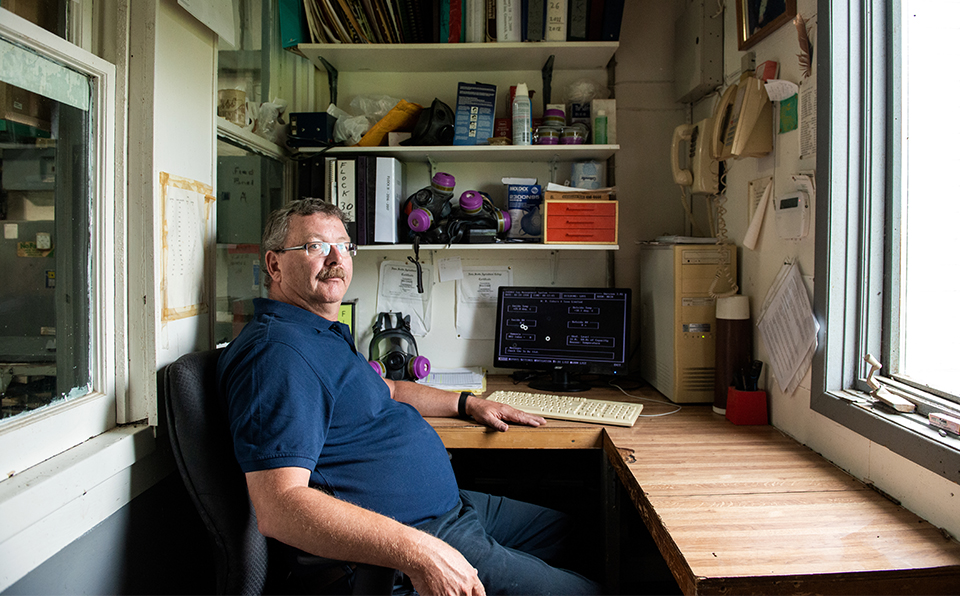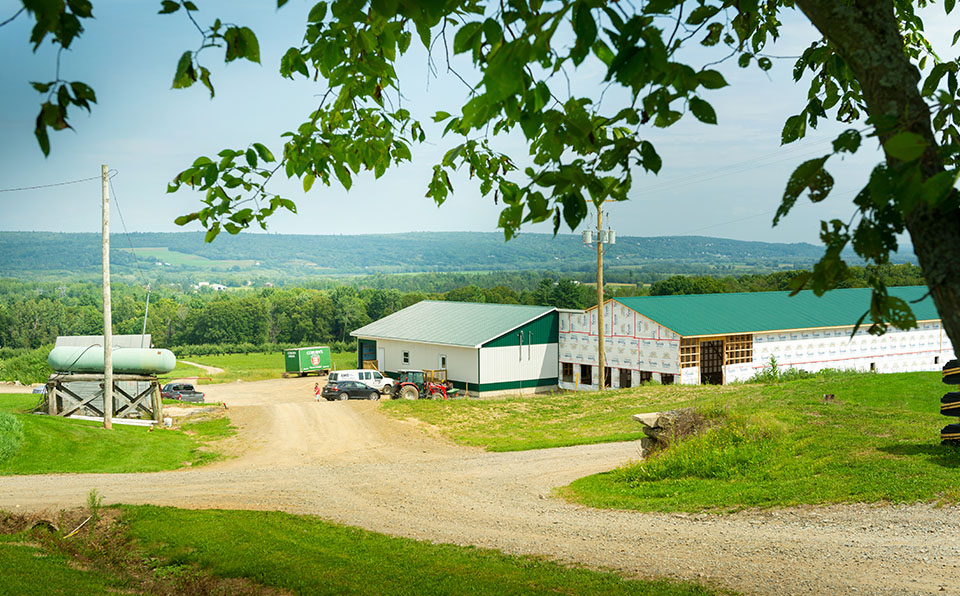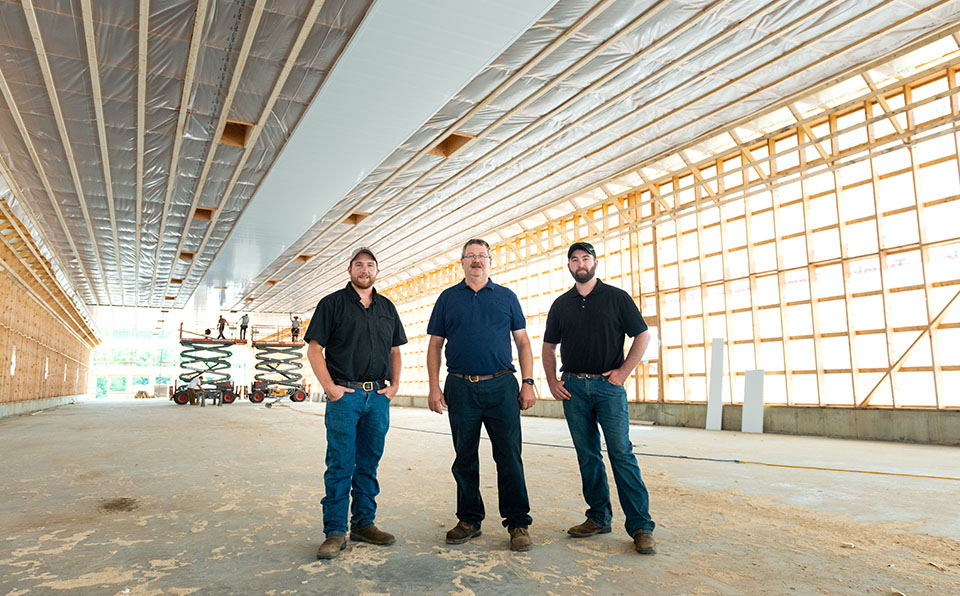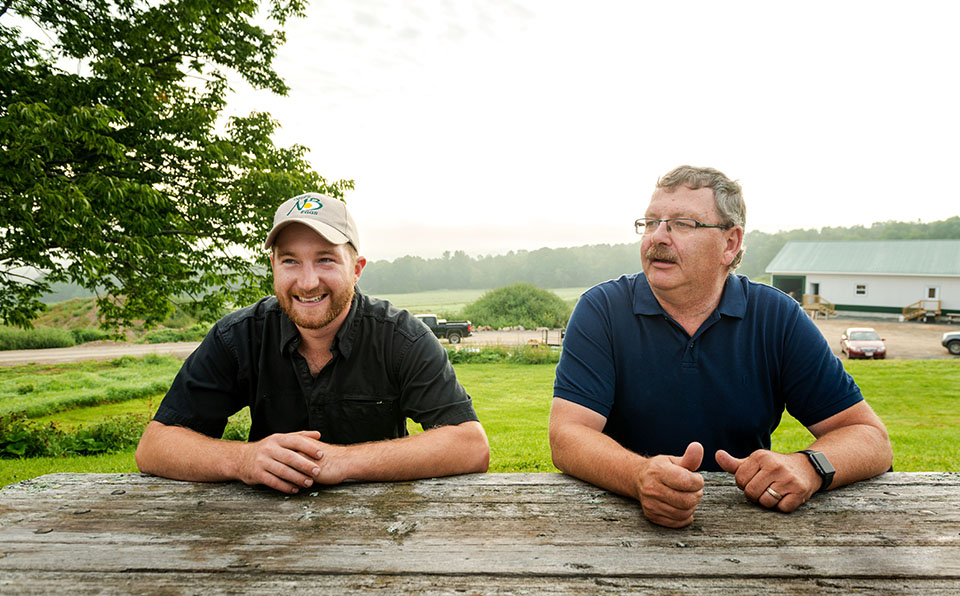
The hen housing transition: how one family is transforming their farm
By Egg Farmers of CanadaCanada’s egg farming industry is evolving. Over the next two decades, Canadian egg farms will phase out conventional housing and embrace a new future using alternative housing systems. It’s a big shift in our industry, so we want to tell it to you through the experience of one family: the Coburns of Keswick Ridge, New Brunswick.
Their family farm is currently headed by David Coburn. David is in the midst of transitioning the farm to his two sons, Glen and Tyler. As part of that transition, the pair completed construction of a brand new enriched colony barn—a cutting-edge system—this past winter. We spoke with them on their farm to learn about the experience of building a new barn and embracing a new way of doing things.


In 2013, the Coburns were in Atlanta—touring housing systems to see what their options were. At the time there was a growing sense amongst the Canadian egg farming community that egg production was changing, and that conventional housing would be phased out. They eventually settled on enriched colony housing.

To get a sense of the contrast between conventional hen housing and enriched colony housing, think about airplane seating. If conventional housing is economy class then enriched housing is business class—more amenities, more space, more comfort. The system is designed to empower natural behaviours.
For example: hens often lay eggs in private darker spaces away from other hens. Enriched housing systems feature private nest boxes where that instinct can be followed. The system includes new LED lamp pillars, which maintain consistent lighting throughout the housing system.

Across the board, it is the amenities that make enriched housing great—and the incredible effects they have on the lives of hens. It was these reasons and more why Glen and Tyler decided that enriched housing was the future of Coburn Farms.

Glen and Tyler are excited for their new barn. It truly is their project, managed by them, as the sons increasingly take over operations from their father. And as their dad takes on greater responsibilities off the farm—on the board of Egg Farmers of New Brunswick— Glen says “we get the farm to ourselves, so we have to figure it out.”
As David describes it, every generation of Coburn is a caretaker for the next. This will be one of Glen and Tyler’s great contributions to Coburn family history, and it’s an experience that will be shared by farmers across Canada as they embrace new technology and innovative tools on the farm.
Like many agricultural sectors, egg farming is evolving. What isn’t changing is the work farmers do for Canada: providing a consistent supply of fresh, local, nutritious eggs.